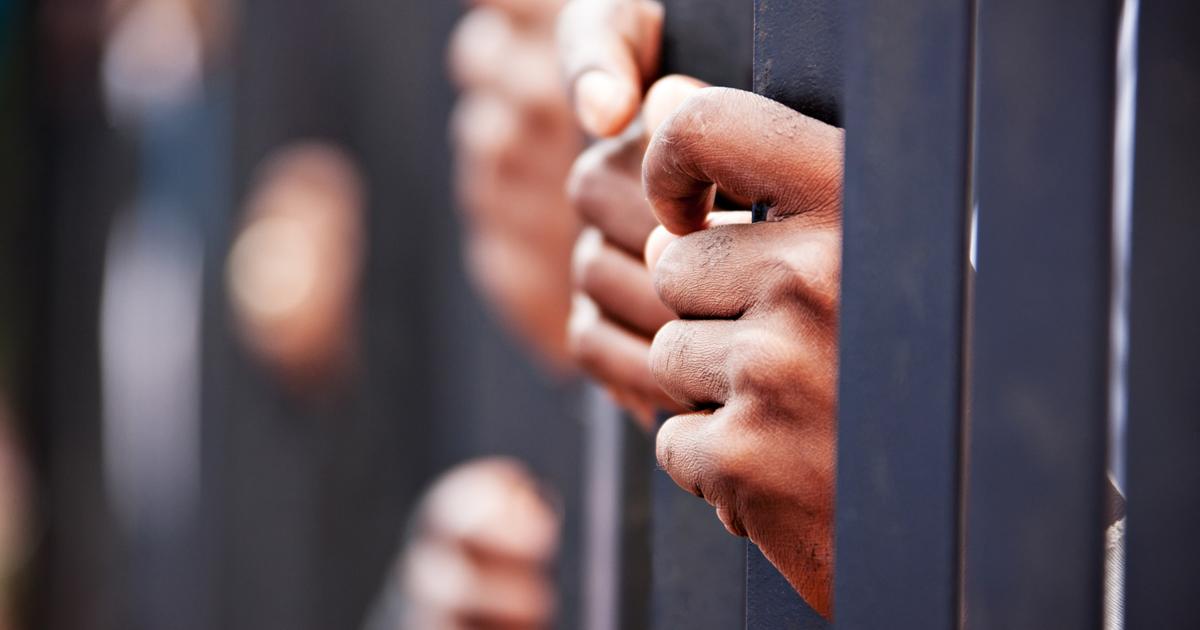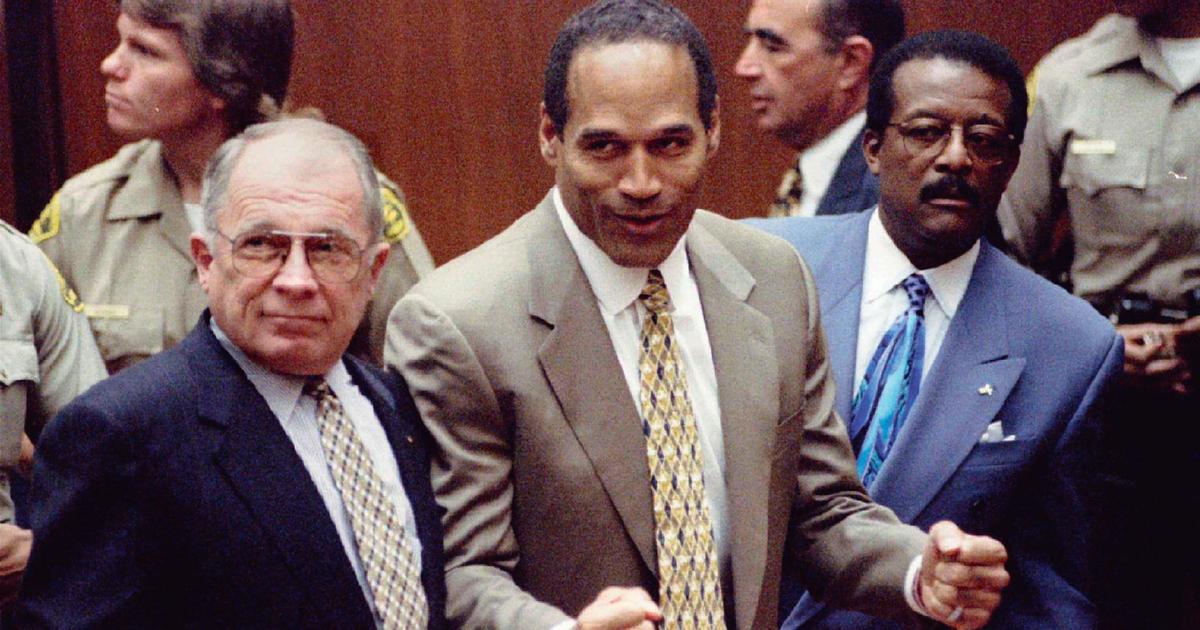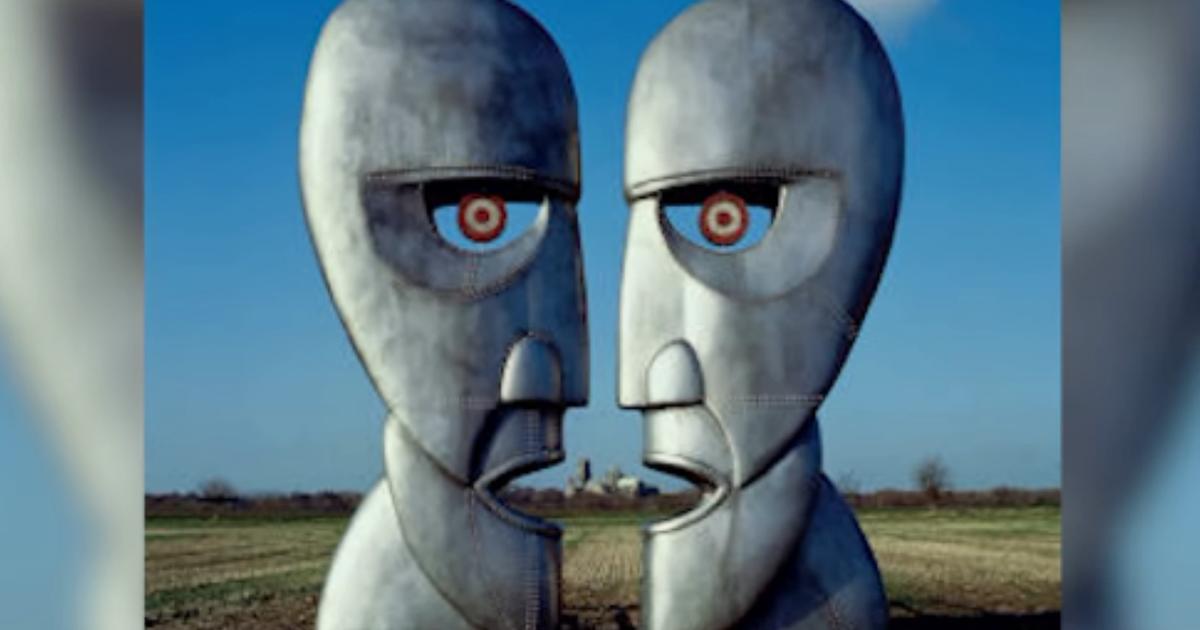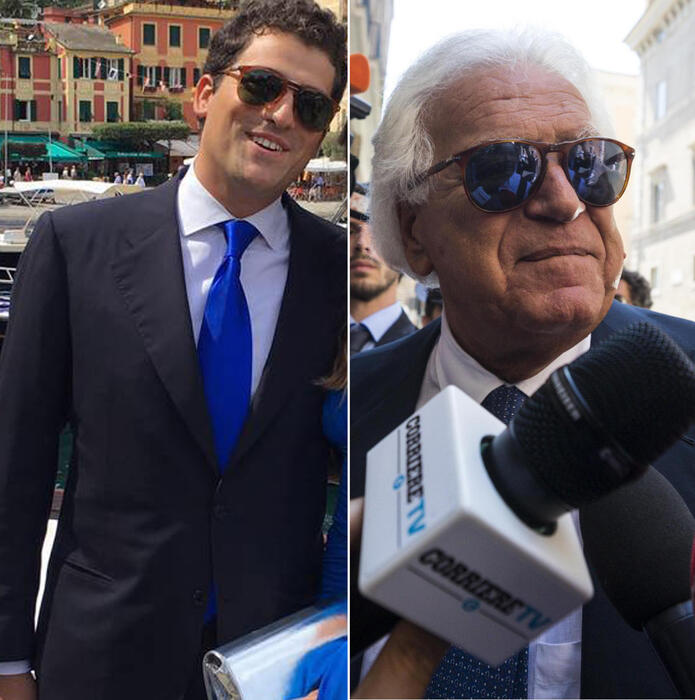Enlarge image
Downtown Minneapolis is guarded by National Guard soldiers
Photo: Henry Pan / imago images / ZUMA Wire
In a good three weeks, 45 witnesses were heard and several hours of video material viewed.
Doctors gave their expertise, police officers were interviewed, passers-by described what they saw and heard.
Now twelve jurors are to make a decision in the trial of the death of the black George Floyd in Minneapolis, Minnesota.
Is former police officer Derek Chauvin, who kneeled on Floyd's neck during an operation on May 25 last year, guilty or not guilty?
According to the jury's verdict, does he have to go to jail for decades or can he get away with a mild sentence?
The jury is strictly shielded from the public and must stay in a hotel until the end of the trial.
This type of barracking usually ensures that the jury's deliberations end after a few hours.
Sometimes, however, when the matter is particularly complicated, the whole thing can drag on for days.
Despite barracking.
Just before the deliberations began, Judge Peter Cahill clarified the jury's rights and obligations: he warned them to be careful in their work.
In general, you shouldn't watch the news or be distracted.
"Take the time for the deliberations you need," said the judge.
Enlarge image
Defendant Derek Chauvin in the Minneapolis courtroom
Photo: Uncredited / dpa
Derek Chauvin could be found guilty on three counts under Minnesota law and under the indictment: second degree murder, third degree murder, and second degree manslaughter.
The jurors have to decide on each point separately.
In total, he faces up to 75 years in prison.
The exact sentence will be determined later by the judge.
If the jury does not come to a joint verdict, the process may have to be started again.
The national guard secures the city
The pressure on the twelve women and men on the jury is enormous: Almost all of America is looking at their verdict with tension.
Seldom before has a criminal trial in the USA been so politically charged.
The death of George Floyd triggered major protests and, in some cases, violent unrest in the United States last year.
The outrage over police violence against blacks and racism drove hundreds of thousands of demonstrators to the streets calling them "Black Lives Matter". In many places there is great concern that a too mild judgment or even an acquittal for Chauvin could lead to new, serious unrest. In any case, many blacks would feel vindicated in their view that their rights are often systematically ignored by the police and judicial systems.
Emergency response plans are being prepared in the metropolises of New York, Chicago, Los Angeles and Atlanta.
In Minneapolis itself, at the scene of the event, several thousand National Guard soldiers have deployed to protect the courthouse and downtown.
The city's schools will be closed for face-to-face classes from Wednesday.
The social media giant Facebook announced that it would delete posts calling for acts of violence.
Derek Chauvin also sat quietly in the courtroom during Monday's indictment and defense closing arguments.
He seemed to be listening intently, taking notes.
The expression on his face always stayed the same, without any emotion.
Chauvin exercised his right to refuse to testify at the trial.
The question arises as to whether that helps or harms him with the jurors.
Perhaps he could have won sympathy through a testimony of his own, perhaps also through an apology to the family of George Floyd.
He missed this chance.
Apparently, he and his lawyer, Eric Nelson, feared that cross-examination would have done him more harm than good.
With his closing remarks, prosecutor Steve Schleicher once again recalled the horror of the events of May 25, 2020.
It showed impressive images from surveillance cameras and the police officers' body cameras.
For him it is clear that Chauvin is responsible for Floyd's death, so Schleicher.
“That wasn't police action.
That was murder. "
Chauvin knelt on Floyd's neck and back for a total of nine minutes and 29 seconds.
Although Floyd begged for his life, Chauvin did not let go of him.
Police action got completely out of hand
The entire operation in Minneapolis went wrong that day, argued the prosecutor.
The police were called to a supermarket because Floyd allegedly paid with a fake $ 20 bill.
After that, Floyd behaved cooperatively the entire time.
He had been handcuffed and followed all requests from the police.
Enlarge image
Shortly after the death of George Floyd, protests broke out across the United States last year.
In Minnesota and other cities, the demonstrators carried pictures of the person killed.
Photo: CARLOS BARRIA / REUTERS
Only when they tried to force him into the back seat of a police car did the situation escalate. Floyd pleaded with the officers not to lock him in the narrow space in the back seat because he suffered from claustrophobia. Instead of de-escalating the situation, Chauvin and other officials would then have pressed him to the ground. All the rules and training instructions had been violated because Floyd was restrained with his knee for minutes. This unlawful, deliberate and in every respect disproportionate use of force has been shown to have led to his death, the prosecutor said.
Chauvin's defense attorney Eric Nelson denied the allegations.
His tactics in the closing argument: He wanted to make it clear to the jury that, in his view, the prosecution had not provided sufficient evidence of disproportionate or deliberate actions by his client.
It is also not at all clear that Floyd's death was caused by the pressure from Chauvin's knee.
All of this means: If in doubt, the jury would have to acquit the accused, argued the lawyer.
"Chauvin's Heart Was Too Small"
Nelson repeatedly pointed out that Chauvin had behaved like a "sensible policeman" during the operation.
Floyd fought massively and the officers always had to expect that he would attack them.
That's why he was fixed on the floor.
Also, a crowd that was watching the events acted hostile, which increased the level of stress among the police.
Neither Chauvin nor the other cops intended to harm Floyd.
On the contrary.
They would have called an ambulance for him soon after the operation began.
Floyd was under the influence of drugs and suffered from chronic heart disease, an enlarged heart.
This may have been the cause of his death.
"The whole thing is tragic," said attorney Nelson.
These statements were indignantly rejected by the prosecution. Attorney Jerry Blackwell said Chauvin's attorney was spreading "misleading" stories. "You heard here that George Floyd died because his heart was too big," Blackwell said. "In truth, he died because Mr. Chauvin's heart was too small."








